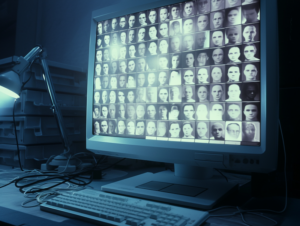
Ann Arbor, Michigan, has moved to restrict the use of facial recognition technology by law enforcement, declaring it a threat to civil rights and liberties.
On June 3, 2024, the City Council unanimously voted to instruct City Administrator Milton Dohoney to collaborate with the Ann Arbor Police Department to create a policy that ensures facial recognition technology is used only as a supplementary investigative tool, and not as the primary basis for identification, arrest, or prosecution.
The council’s resolution highlights the potential privacy violations and civil rights issues associated with widespread use of facial recognition technology. The American Civil Liberties Union (ACLU) has documented several wrongful arrests attributed to inaccuracies in facial recognition systems, particularly affecting Black individuals.
While a study released by the National Institute of Standards and Technology (NIST) in 2019 did point to the presence of racial and gender bias in some facial recognition algorithms, more recent studies have shown a marked improvement in that area.
Last year, the UK’s National Physical Laboratory (NPL) released a study addressing the issue of racial bias in facial recognition technology, specifically examining NEC’s NeoFace solution and the HD5 Face Detector. The research revealed no statistically significant differences in the accuracy of facial recognition across various demographic groups when the system is configured at the settings used by the Metropolitan Police.
However, the NPL study found that at a matching threshold of 0.6, the system had a minimal false match rate, and raising the threshold further reduced or eliminated false positives.
Ann Arbor council members highlighted the need for strict oversight and regulation, emphasizing that facial recognition technology should not be the sole determinant in law enforcement actions. The council’s resolution also calls for the Washtenaw County Prosecutor’s Office, the Michigan attorney general, and other state law enforcement agencies to adopt similar policies, aiming for a cautious and just application of the technology.
Source: MLive
–
June 11, 2024 – by Tony Bitzionis







Follow Us